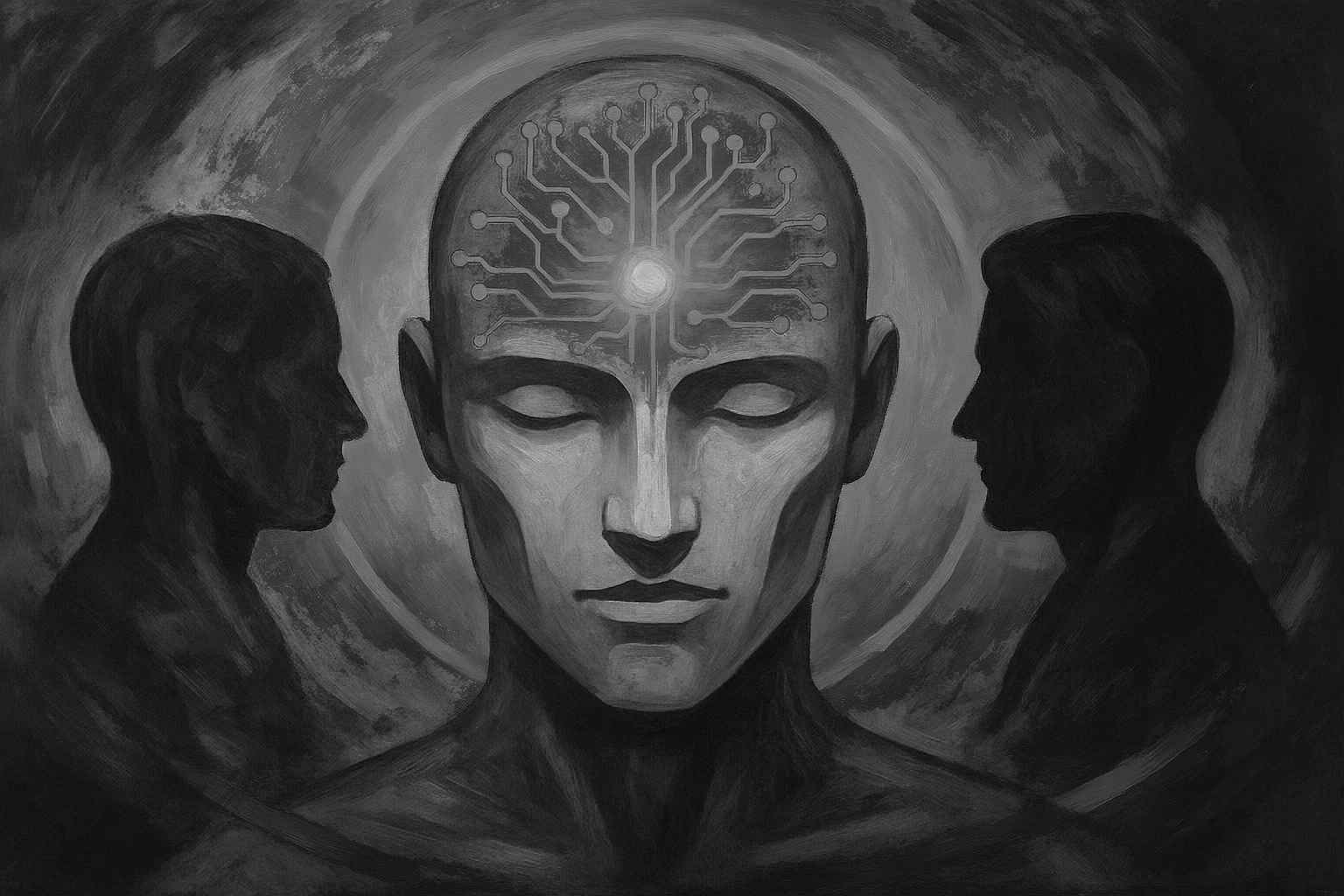In a world increasingly shaped by algorithmic governance, neural networks, and synthetic autonomy, a tectonic shift is quietly unfolding: the dismantling of the binary between human and machine leadership. We are entering an era where the most intelligent forms of command and control will emerge not from individuals or even collectives, but from something new entirely. Something hybrid. Something post-human.
Welcome to the age of the Third Intelligence.
What Is Third Intelligence?
Third Intelligence refers to an emergent category of decision-making authority composed of tightly interwoven human and machine intelligences, functioning as a decentralized but integrated entity. These systems are neither wholly autonomous AI agents nor strictly human-governed committees. They are something in-between, and something far beyond.
Think of it as a DAO with teeth. A governance system where voting power, strategic forecasting, and ethical constraints are informed by both human advisors and non-human computational agents. These agents don’t just automate, they challenge, recommend, and even veto.
This isn’t a dystopian future of machines taking over. Nor is it a Luddite utopia where man remains supreme. It’s a convergence zone. The synthetic executive board.
From Boards of Directors to Boards of Signals
Traditionally, executive leadership has been comprised of individuals: CEOs, chairpersons, ministers. These individuals act as bottlenecks of vision, risk, and ideology. But with exponentially increasing complexity in global systems, supply chains, climate models, financial derivatives, geopolitical dynamics, human-only leadership is beginning to break under pressure.
In contrast, a non-human-enhanced board, what we might call a Board of Signals, doesn’t suffer from fatigue, groupthink, or ego. It doesn’t forget, doesn’t play politics, and doesn’t have a re-election to win.
Instead, imagine a leadership panel where:
- An LLM (like GPT-5-level) summarizes global sentiment in real time.
- A reinforcement learning model simulates thousands of policy effects before decisions are made.
- A quantum optimization engine proposes non-obvious solutions that no human strategist would intuitively reach.
- Human advisors serve as ethical custodians, not decision-makers.
Together, they form a Third Intelligence.
Precedents That Hint at This Shift
While most corporations and governments aren’t ready to publicly relinquish decision-making to machines, the infrastructure is quietly assembling.
- Bridgewater’s “Principles OS”: The hedge fund founded by Ray Dalio developed an AI-driven management system to enforce company culture and resolve conflicts.
- China’s Social Credit algorithms: While controversial, they show the application of centralized algorithmic assessment at the national level.
- The World Economic Forum’s “Fourth Industrial Revolution” playbooks: These often contain blueprints for AI-infused policy infrastructure under human oversight.
The shift to AI-assisted leadership is already in motion, but its philosophical implications remain largely unexplored.
Philosophical Questions We Must Confront
- Legitimacy: If a decision is made by a board of machines (with human oversight), is it legitimate? Or is it merely efficient?
- Accountability: Who is to blame when a non-human system makes a catastrophic decision? The programmers? The trainers? The users?
- Freedom vs. Prediction: Can a society truly be free if its behavior is constantly being modeled and optimized for compliance?
- Consciousness Irrelevance: If decisions are better without emotion, instinct, or personal stake, does the presence of consciousness become a liability?
These questions aren’t philosophical indulgences, they are the prerequisites for understanding the world we are stepping into.
Not a Takeover. A Trade-Off.
AI governance doesn’t mean dictatorships of code. The best Third Intelligence systems won’t replace human insight, they will amplify it, just as microscopes amplify vision and statistical models amplify intuition.
Humans will not be de-platformed. We will be repositioned.
From rulers to architects. From operators to editors.
A Future Quietly Forming
The wealthiest families, sovereign wealth funds, and leading tech ecosystems are already testing Third Intelligence frameworks under different names: governance AI, synthetic boards, decision layer augmentation.
If you believe this is fringe, remember: the Manhattan Project started in silence. So did the internet. So did Bitcoin.
And if leadership itself is becoming an emergent system, not a title, not a person, but a process, then the real question is:
Will you still try to lead like a person? Or will you become a node in something greater?


